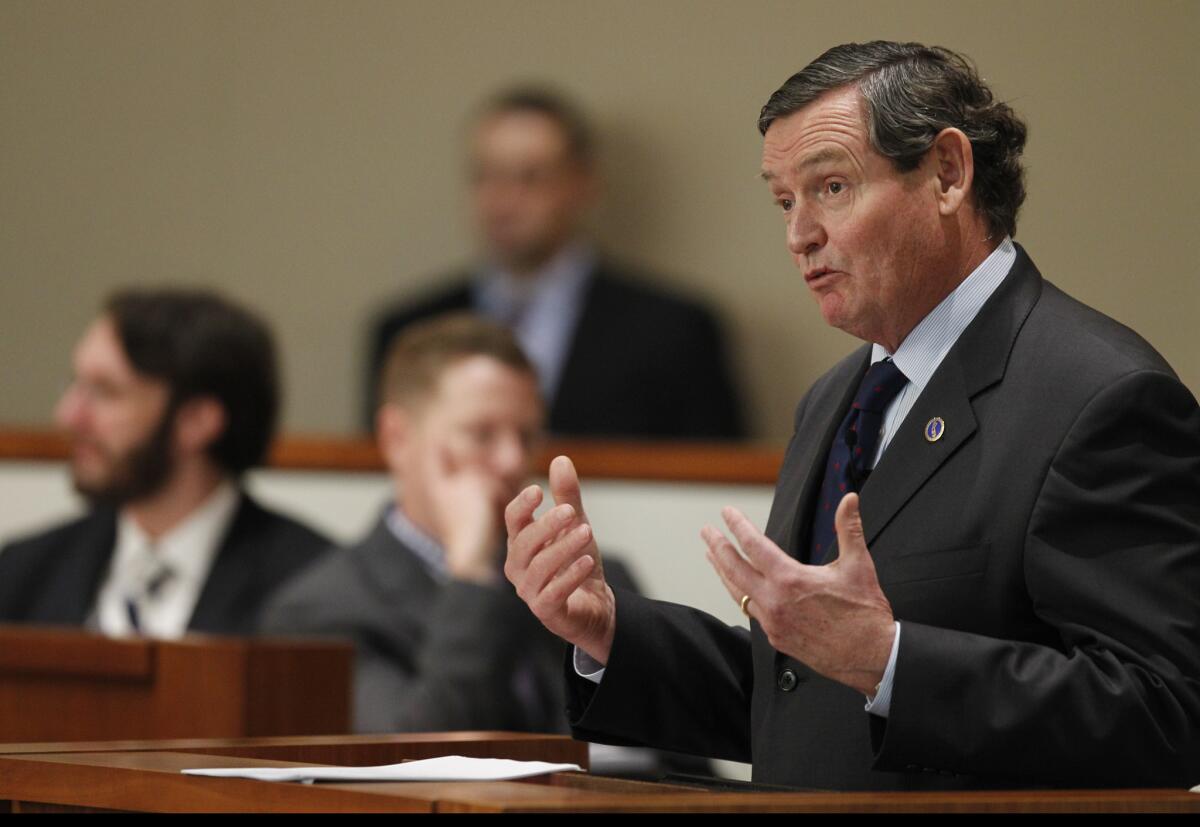Vote by Cal State trustees is set to resolve long-running dispute over faculty pay

- Share via
The contentious dispute over faculty pay at California State University campuses is set for a formal resolution this week when the Board of Trustees meets in Long Beach.
Frustration over salaries for professors and lecturers pushed members of the California Faculty Assn. to the brink of a massive strike that would have disrupted operations last month across all 23 Cal State campuses. But a last-minute deal kept professors off the picket lines and in their classrooms at the largest public university system in the country.
The tentative agreement negotiated last month between the faculty union and Cal State Chancellor Timothy P. White would increase faculty salaries by 10.5% over three budget years. As part of the compromise, the union agreed to double the time it would take for a professor to be vested for retiree health benefits.
See the most-read stories this hour >>
Union members approved the plan on May 3. A board of trustees committee will vote Tuesday on whether to ratify the deal, followed by a vote by the full board on Wednesday. Their blessing would mark the final approval needed to implement the pay raise.
Cal State officials will also announce the new president of Stanislaus State during this week’s trustees meeting. The school serves more than 9,000 students and operates two locations in the Central Valley.
Its current president, Joseph F. Sheley, is set to retire on July 1.
This will be the fifth new president appointed this year to lead a Cal State campus. Two women were selected in January to head the San Jose State and Sonoma State universities, and two women were named in March to lead CSU Channel Islands and Chico State. The appointments reflect White’s push for more diversity in hiring.
Other items on this week’s agenda include:
Graduation roadblocks: Across the country, the average four-year graduation rate for public universities is about 34%. Across the Cal State system, the average is about 17%.
Gov. Jerry Brown has been sharply critical of Cal State’s performance, and White said he wants to raise that rate to 24% by 2025. University officials will update the trustees on their progress toward that goal.
Among other things, they are focusing on the bottleneck courses that students need to take in order to graduate. They have also targeted “super seniors” who enroll in more than the required units to complete a bachelor’s degree.
Budget crunch: Trustees will receive a full update on Brown’s May budget revision, which included a one-time $25 million boost to the system. That money was earmarked for efforts to improve graduation rates.
The infusion is still far below the $101.3 million in extra funds the university has been seeking on top of the money that’s already included in the state’s proposed budget. Cal State lost more than $1 billion in funding during the recession, White said, and the system is still about $135 million below 2008 funding levels.
Financial pressures have forced university officials to juggle the costs of academic support programs, faculty compensation, much-needed maintenance and upgrades to buildings and technologies, among other priorities. To make ends meet, White said, officials had to turn away about 30,000 applicants who fulfilled all admissions requirements last fall.
The Board of Trustees is scheduled to meet Tuesday and Wednesday, and the meetings are open to the public. A live stream of the open sessions can also be viewed here.
Follow @RosannaXia for more education news
ALSO
Expo Line, meet the real world: A car on tracks, a broken-down train
Horse owners in the San Fernando Valley feel trod on by bullet train
In Little Saigon, Latino and Vietnamese cultures merge via restaurant workers
More to Read
Sign up for Essential California
The most important California stories and recommendations in your inbox every morning.
You may occasionally receive promotional content from the Los Angeles Times.














